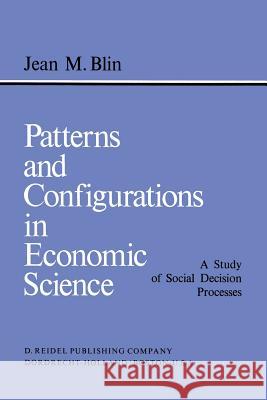Patterns and Configurations in Economic Science » książka
Patterns and Configurations in Economic Science
ISBN-13: 9789401095914 / Angielski / Miękka / 2013 / 148 str.
This book was born from the belief that, in an era of narrowly specialized experts, looking beyond the arbitrary borders on one's own field offered the only chance for intellectual survival. The spectacular growth of economics in the past forty years or so has been accompanied by the rapid fragmentation process that seems to characterize the making of any science. If we chose to view this as a symptom of scientific maturity, we would be tempted to welcome this process. But, as economists, we should think of its opportunity cost. In one sense this work attempts to assess the price we have chosen to pay - consciously or not - to win recognition of our scientific status from other disciplines. If, after going through this book, the reader comes out with the feeling that this shadow price is not all shadow after all, we will have achieved one of our goals Both the merits and defects of this book stem from the fact that we tried to pursue a different approach in the study of economics. This line of thought originates in the area of pattern recognition and machine learn ing. For the past two decades, a number of applied mathematicans, logicians, and engineers have systematically tried to mimic human intelli gence in one of its most important functions viz. that of identifying and recognizing patterns in an a priori unorganized and confusing environment."











